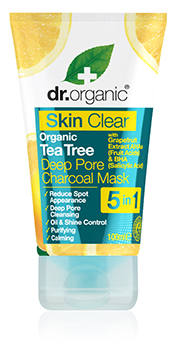Going Green
In Advice
Follow this topic
Bookmark
Record learning outcomes
More people than ever are opting for organic and natural beauty products. Anjana Gosai explores the latest trends in the market and how to help customers purchase the right products

Organic food is a well-established choice for supermarket shoppers; people are more selective about the food they eat and are now becoming increasingly discerning about the products they slather on to their skin. As a result, the demand for organic and natural products is on the rise. Last year, the market for certified natural and organic products grew by 13% €“ it is now valued at £61.2m in the UK, according to the Soil Association. Samantha Dover, retail analyst at Mintel, adds: €Half of all consumers who have purchased beauty products in the last 12 months say that they look for products that are made with natural ingredients. The interest in natural beauty is closely linked to the natural and clean eating trend that continues to gain popularity, resulting in consumers becoming as concerned with what they put on their bodies as in them.€ Despite the rise in popularity of natural and organic beauty products, there is still much confusion among consumers when shopping for them.
ORGANIC VS NATURAL VS NATURALLY DERIVED
In general, a product marked as 'organic' must be composed of plant-based ingredients grown organically, without the use of pesticides and other chemical nasties. The products and ingredients within them should also be certified as organic by a recognised organisation.
A 'natural' product can comprise of ingredients such as plants, herbs and essential oils €“ these do not necessarily have to be organically grown €“ and can often contain synthetic ingredients too.
Some products are also labelled 'naturally derived'. This means the ingredients are of natural origin, but they may have been through chemical, synthetic or natural processes.
Currently, these terms are being used far too freely in the beauty industry and consumers are becoming lost in a maze of marketing claims and false labelling, known as 'greenwashing'.
CHECK LABELS AND LOGOS
Unlike with organic food, there is no legally enforced standard for the use of terms such as 'organic' and 'natural' for beauty products in the UK.
€Many brands are making natural and organic marketing claims, which makes it difficult to distinguish legitimate brands from those that are making false claims,€ says Amarjit Sahota, president and founder of global ethical product specialist, Ecovia Intelligence.
One way to clear up consumer confusion is with certification. €By opting in to natural and organic cosmetic standards, formulators have a clear list of permitted and prohibited ingredients and processes,€ says Sahota. €Certification also builds consumer trust, giving them a guarantee that products conform to some recognised standards,€ he adds.
The easiest way for shoppers to make sure that they are getting what they've paid for is to look for certified logos on products.
The Soil Association is widely regarded as the benchmark for an organic product in the UK. Other European certification logos to look for include BDIH, Cosmebio, Ecocert and ICEA.
These companies have now joined forces to form COSMOS €“ an internationally recognised cosmetic organic standard, which ensures that products can back up their natural or organic claims.
To receive the COSMOS stamp of approval, a product must go through a robust certifying process. Its ingredients must be 95% organic, grown without the use of genetically modified organisms (GMOs), and must avoid pesticides, herbicides and synthetic fertilisers.
COSMOS also provides certification for products labelled 'made with organic ingredients'. These products must contain 20% organic ingredients for leave-on products and 10% for rinse-off formulas.
Not every naturally-sourced ingredient can be used in its original form; some need to be processed in order to be used safely. COSMOS natural certification will guarantee that the product contains natural ingredients, with the percentage displayed on the pack.
WHY PICK NATURAL OR ORGANIC PRODUCTS?
€The main reason consumers are buying natural and organic beauty products is that they are perceived to carry lower health risks,€ says Sahota. €90% of buyers of natural and organic beauty products say it is important for them to avoid contentious synthetic chemicals. There are environmental benefits too; since these products contain plant-based ingredients, they have a lower carbon footprint, and may involve less processing and more sustainable production processes like organic farming,€ he explains.
People with problematic skin often gravitate towards these products. With the rise in pollution levels combined with the use of synthetic chemicals in certain products, more people are suffering from skin sensitivities than ever before.
€Natural ingredients are less likely to cause skin irritation as they tend to work in harmony with our skin,€ explains Jo Chidley, chemist and founder of natural brand, Beauty Kitchen.
ORGANIC AND NATURAL TRENDS AND INNOVATIONS
In a bid to help them compete with conventional science-led brands, numerous organic companies are investing in clinical trials, sourcing newer ingredients and employing sophisticated methods such as fractioning and cold-pressing to better preserve the potency of plant and seed oils.
Australian brand Antipodes offers green beauty products pumped full of scientifically proven anti-ageing ingredients. €Smart consumers deserve a scientific level of proof in the flooded market of natural and organic skincare,€ says brand founder Elizabeth Barbalich. €Our products have authenticity at their core, as their anti-ageing ability has been independently and scientifically validated.€ Studies have shown that the Antipodes Worship Skin Defence Antioxidant Serum (RRP £34.99), loaded with antioxidant boysenberry, blackcurrant and Vinanza grape, inhibits free radical damage.
Currently, the organic and natural industry is largely dominated by products targeted at women; however, this is beginning to change. Organic and natural solutions specifically designed for expectant mothers, men and children are also set to rise, according to a recent report by the Soil Association. One example is Pai Skincare €“ the certified organic brand has recently launched a children's range, Petit Pai. €More consumers are choosing organic for their own skincare, so it's a natural progression to want the same for their children,€ says Sarah Brown, founder of Pai Skincare. Petit Pai Apple & Mallow Blossom Face & Body Cream (RRP £20) contains a blend of soothing botanicals.
Demand for organic and natural make-up is also growing. The latest organic offerings boast all the qualities of premium brands, with luxurious textures, chic packaging and on-trend shades. Take Ilia Beauty €“ the certified organic make-up line skips ingredients such as petrochemicals and fragrance. Products are made with 85% organic ingredients and have the look and feel of traditional luxe brands. The best-selling Ilia Lip Conditioner (RRP £22) is lightweight and packed with organic vitamin E and plant waxes, plus orange and jasmine essential oils.
 Accessibility of natural and organic beauty is constantly improving, with lower price points and improved distribution. For example, Dr. Organic's extensive range is formulated with accredited and certified organic ingredients from around the world, and wherever an organic ingredient cannot be utilised, a sustainable natural or naturally-derived alternative is used instead. With prices ranging from £2.79 to £20.99, the range is stocked on the high street in Holland & Barrett, as well as online at the health and wellness retailer's website. Dr. Organic's latest innovation is the Skin Clear range for oily and problem skin. The Organic Tea Tree Deep Pore Charcoal Mask (RRP £6.99) is a deep cleansing treatment mask infused with willow bark extract and charcoal. This mask is ideal for tackling skin problems such as spots, blemishes and breakouts. Boasting a proprietary blend of bioactive, natural and organic ingredients, including tea tree oil, grapefruit and chamomile extract, this uniquely beneficial mask boasts natural AHAs (fruit acids) and salicylic acid, which can help promote the rate of skin cell renewal. Dermatologically-tested, it leaves skin feeling smoother, purified and clearer, with visibly reduced pores.
Accessibility of natural and organic beauty is constantly improving, with lower price points and improved distribution. For example, Dr. Organic's extensive range is formulated with accredited and certified organic ingredients from around the world, and wherever an organic ingredient cannot be utilised, a sustainable natural or naturally-derived alternative is used instead. With prices ranging from £2.79 to £20.99, the range is stocked on the high street in Holland & Barrett, as well as online at the health and wellness retailer's website. Dr. Organic's latest innovation is the Skin Clear range for oily and problem skin. The Organic Tea Tree Deep Pore Charcoal Mask (RRP £6.99) is a deep cleansing treatment mask infused with willow bark extract and charcoal. This mask is ideal for tackling skin problems such as spots, blemishes and breakouts. Boasting a proprietary blend of bioactive, natural and organic ingredients, including tea tree oil, grapefruit and chamomile extract, this uniquely beneficial mask boasts natural AHAs (fruit acids) and salicylic acid, which can help promote the rate of skin cell renewal. Dermatologically-tested, it leaves skin feeling smoother, purified and clearer, with visibly reduced pores.
RETAILING ORGANIC AND NATURAL PRODUCTS
Janey Lee Grace, natural living expert and author of Look Great Naturally without Ditching the Lipstick, offers some advice on selling organic and natural products.
€¢ For better exposure, create a separate, clearly labelled section for natural and organic products. Consumers need to be able to quickly identify where these products are located in store.
€¢ Position them well €“ don't have them tucked away as if they are only for people with allergies.
€¢ Only one in five people consider a product to be natural or organic if it is stocked by retailers known for selling natural products. This suggests that retailers can do more to prove the natural credentials of their products. This could be achieved through showing them where the ingredients come from, in the form of videos in-store depicting how they are extracted or where in the world they are sourced from.
€¢ Understand the core values of the brands behind the natural and organic products on offer, so that you are in a better position to advise consumers. Honesty and openness about product values and benefits is key.
